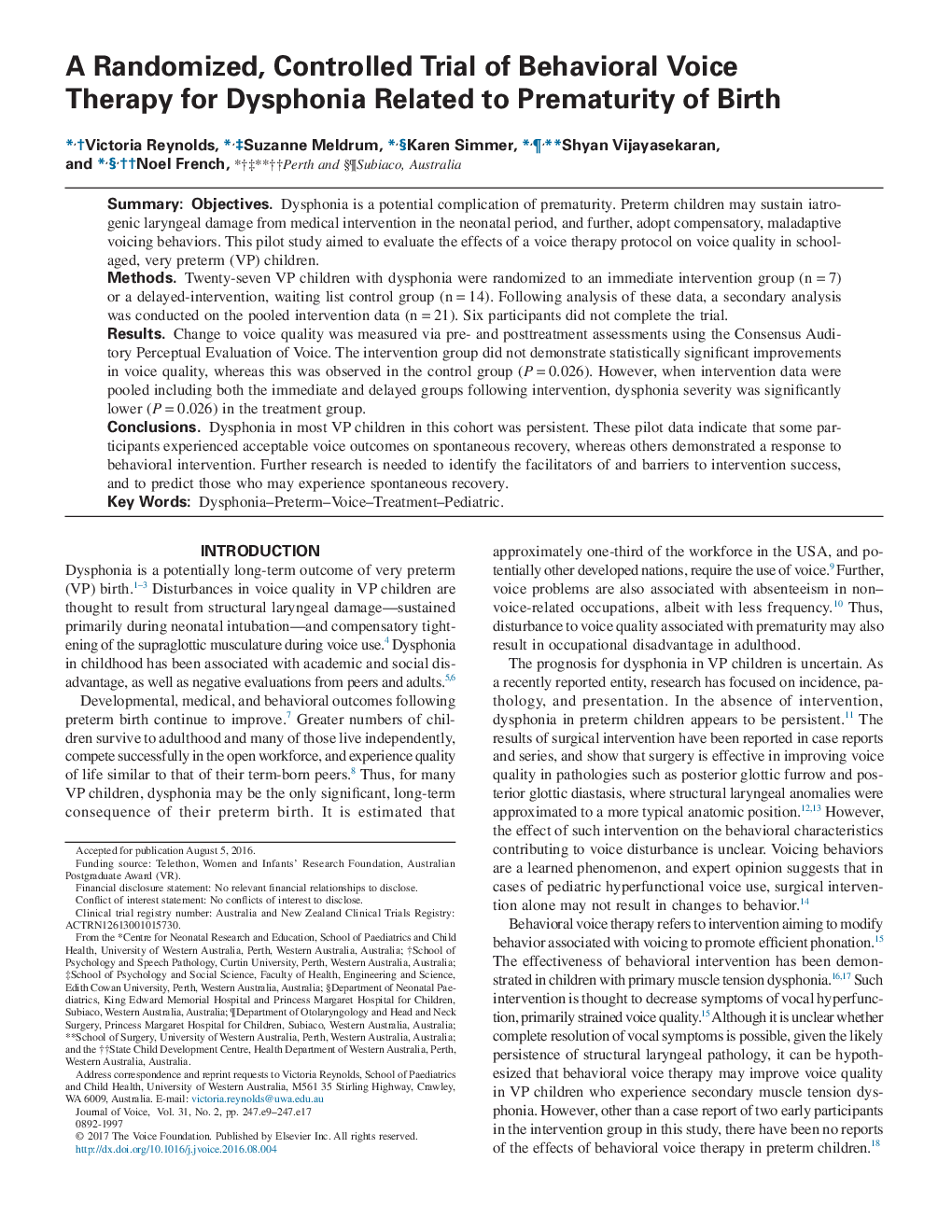| Article ID | Journal | Published Year | Pages | File Type |
|---|---|---|---|---|
| 5124414 | Journal of Voice | 2017 | 9 Pages |
SummaryObjectivesDysphonia is a potential complication of prematurity. Preterm children may sustain iatrogenic laryngeal damage from medical intervention in the neonatal period, and further, adopt compensatory, maladaptive voicing behaviors. This pilot study aimed to evaluate the effects of a voice therapy protocol on voice quality in school-aged, very preterm (VP) children.MethodsTwenty-seven VP children with dysphonia were randomized to an immediate intervention group (nâ=â7) or a delayed-intervention, waiting list control group (nâ=â14). Following analysis of these data, a secondary analysis was conducted on the pooled intervention data (nâ=â21). Six participants did not complete the trial.ResultsChange to voice quality was measured via pre- and posttreatment assessments using the Consensus Auditory Perceptual Evaluation of Voice. The intervention group did not demonstrate statistically significant improvements in voice quality, whereas this was observed in the control group (Pâ=â0.026). However, when intervention data were pooled including both the immediate and delayed groups following intervention, dysphonia severity was significantly lower (Pâ=â0.026) in the treatment group.ConclusionsDysphonia in most VP children in this cohort was persistent. These pilot data indicate that some participants experienced acceptable voice outcomes on spontaneous recovery, whereas others demonstrated a response to behavioral intervention. Further research is needed to identify the facilitators of and barriers to intervention success, and to predict those who may experience spontaneous recovery.
